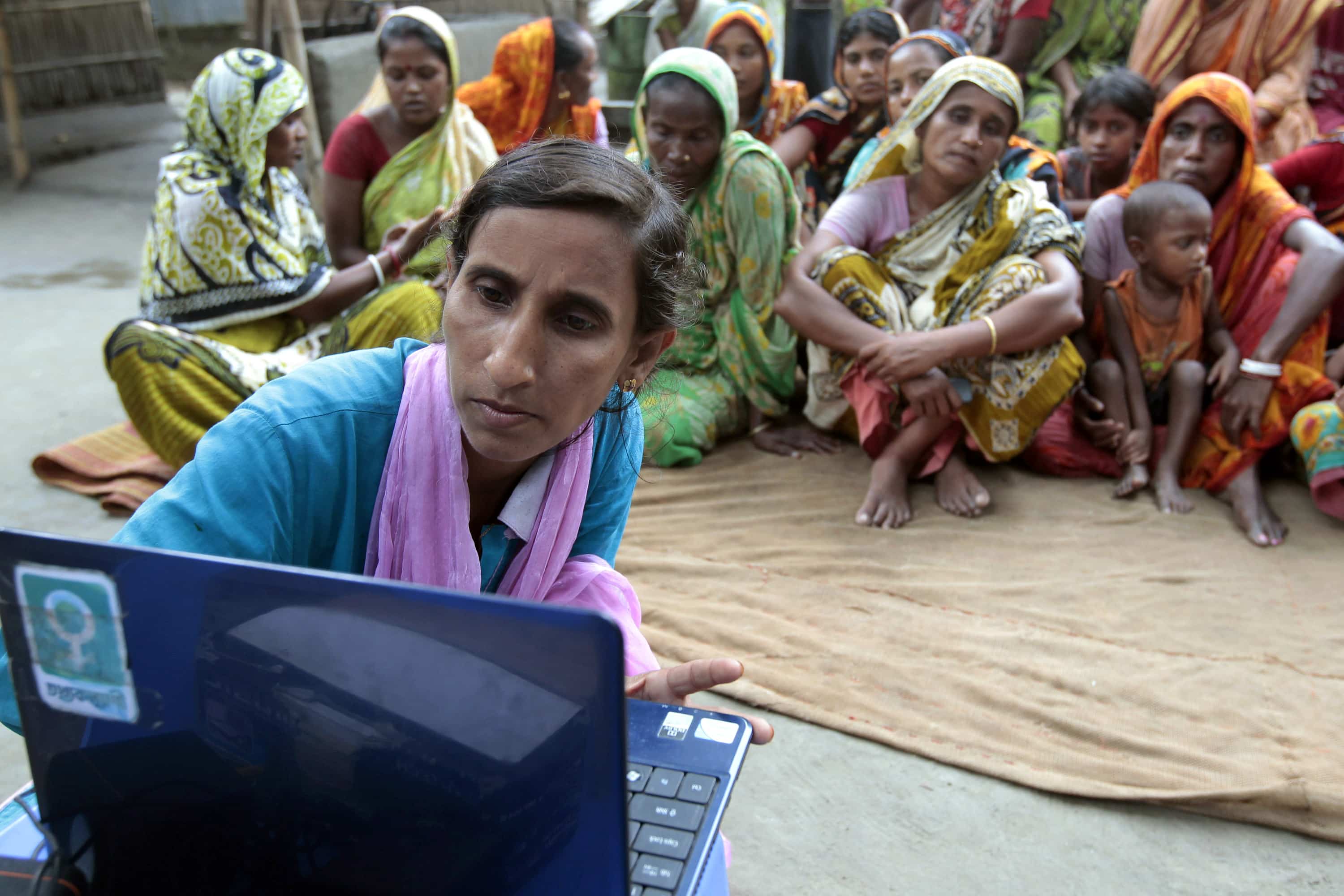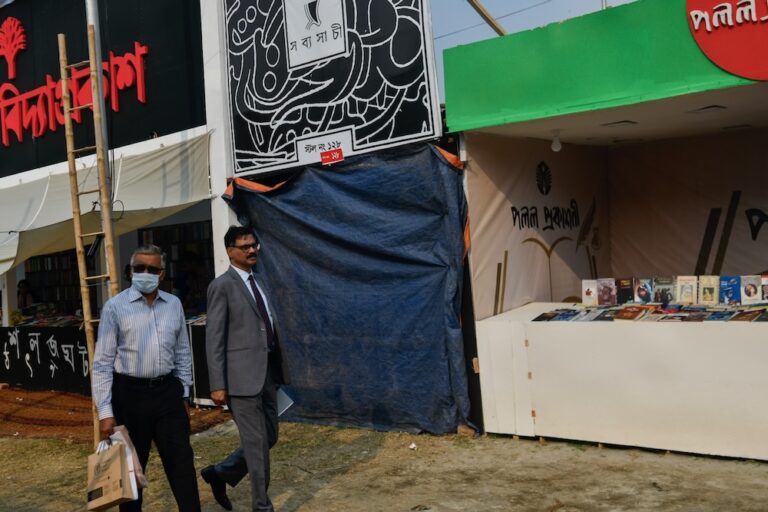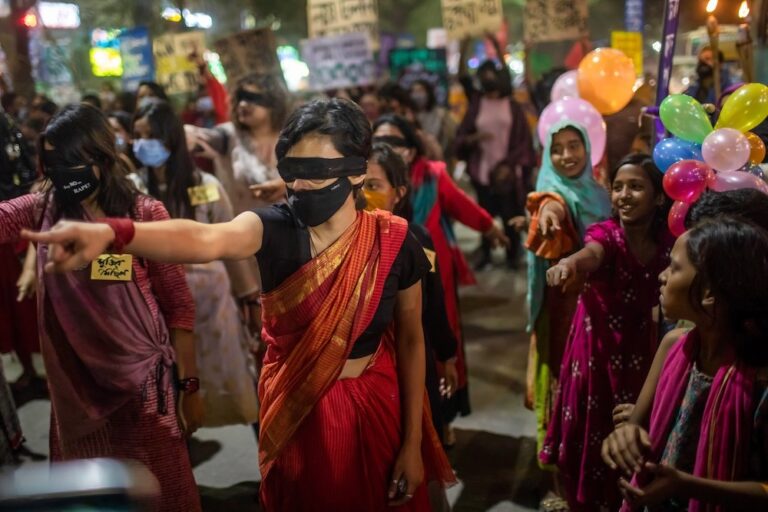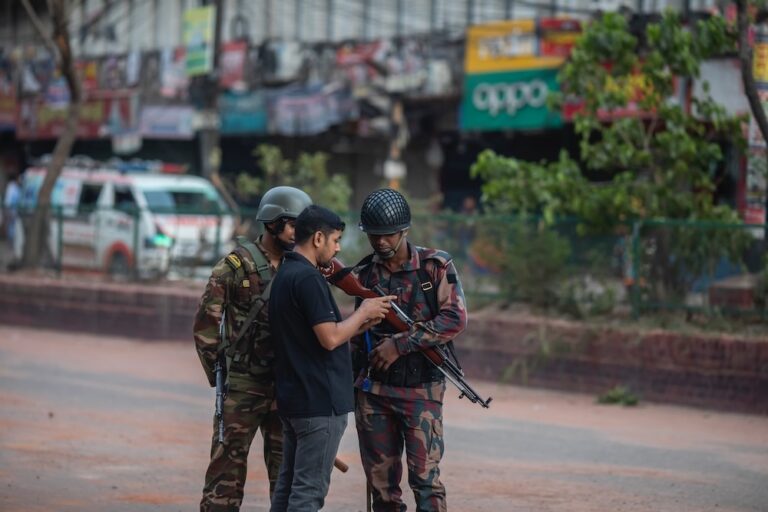Over the past four months in Bangladesh, more than twenty journalists have been sued under the country's 2013 Information and Communication Technology Act.
This statement was originally published on globalvoices.org on 17 July 2017. It is republished here under Creative Commons license CC-BY 3.0.
Over the past four months in Bangladesh, more than twenty journalists have been sued under a controversial law prohibiting digital messages that can “deteriorate” law and order, “prejudice the image of the state or person,” or “hurt religious beliefs.”
Although its authors may have intended for this part of the law to be used sparingly, it is now routinely used to suppress freedom of speech and harass writers, activists, and journalists, often for their comments on social media.
Bangladeshi law enables individuals and private companies to file suit against one another under the law, Section 57 of the 2013 Information and Communication Technology Act. The offenses mentioned above are non-bailable and carry a minimum punishment of seven years (with a maximum of 14 years) and a maximum fine of up to Tk 10 million (USD $123,150).
On June 3, 2017 three journalists were sued by a ruling party activist in Habiganj over a report involving local ruling party (Awami League) lawmaker Abdul Majid Khan. On April 29, a private company filed a lawsuit against journalist Ahmed Razu, executive editor of online portal Natunsomay.com, for publishing two reports that allegedly tarnished the image of the company. The law has been used many times against journalists for their comments against the rich and the powerful.
Nearly 700 cases have been filed under the ICT Act since it was amended in 2013. Research by The Daily Star shows that 60% of them were lodged under Section 57. Approximately 319 such cases are currently at trial.
In the most recent publicly reported case, a professor at Dhaka University’s Department of Mass Communication and Journalism used the law to sue his colleague, Associate Professor Fahmidul Huq, over a Facebook post. The professor alleged that the post divulged confidential official university information.
Ahmad Raju, #Bangladesh journalist imprisoned for violating 57 section of ICT act. where is freedom of speech? @amnesty @hrw @AJEnglish pic.twitter.com/h6P2PpR8Jf
— Ali Ahmad Mabrur (@Mabrur00) May 2, 2017
Activist and lawyer Jatirmoy Barua said in an interview to local news portal Jago News:
Translation: Section 57 of the ICT Act has become a tool to persecute journalists because many journalists are now using the internet and social media to publish/share the news. Writings full of argument, criticism, and disagreement published in books or printed magazines are not being targeted. But the same writings, if shared online are being targeted. [..]
There is no control. It cannot be fathomed who is suing whom. Any statement or expression shared online can be [subject to a lawsuit] if someone else feels their feelings are hurt or they are targeted.
In 2015, Barrister Barua lodged a writ petition against this controversial act in the Supreme Court, which is still waiting for a hearing date.
In May 2017, the Minister of Law, Justice and Parliamentary Affairs Anisul Huq publicly pledged to scrap Section 57 from the law. Instead, they said, these issues will be covered under Bangladesh’s forthcoming Digital Security Act, which may be introduced as soon as in August 2017.
It remains to be seen how this law will affect online speech, and how the many cases launched under Section 57 will play out.



